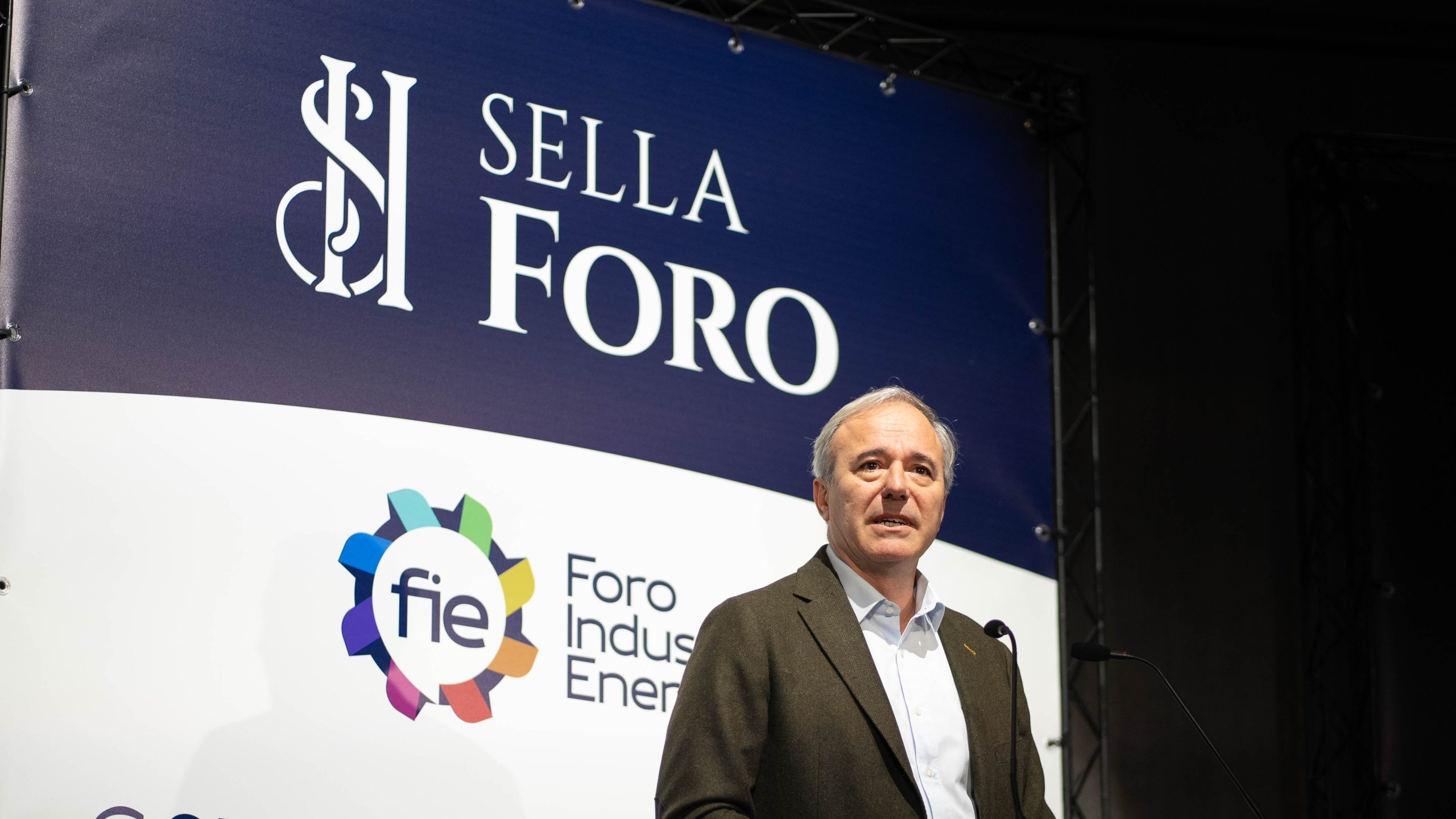- The debate is no longer about changing the energy model, but about how this will change the economic model (Jorge Azcón, President of the Government of Aragon).
- Energy is a factor of competitiveness for both companies and society. Clean, safe and competitive energy is a general good “and in Aragón we must defend it” (Miguel Marzo, president of CEOE Aragon).
- Energy transmission is possible, but it requires a reduction in demand, a significant increase in renewable energies and a reduction in fossil fuels (Mike Berners-Lee).
The President of the Government of Aragón, Jorge Azcón, inaugurated the 1st International Foro Sella Conference and argued that “the debate is no longer about changing the energy model, but about how this will change the economic model”. Thus, beyond environmental awareness, which is equally important, the question is about “doing the math”.
The change of energy model is already a fact, and will have a key importance in the new industrial and economic model. his was one of the main conclusions of the conference, which took place on Friday, November 24 in Villanueva de Gállego (Zaragoza, Spain). For Jorge Azcón, there is no doubt that “Spain has an incredible opportunity to change the economic model in all matters related to the electrification of the economy”. And, as far as Aragon is concerned, he stressed that the fact that ‘big tech’ such as Microsoft or Amazon have chosen the region to establish themselves makes it clear that “there are elements that allow us to be much more competitive“.
“The average consumption of renewable energy in our region is around 45%, but we produce 75% in Aragon. The challenge is not only to produce more energy, but also to consume it,” he stressed. “I want production and consumption to match, because that will mean that there are more industries coming to the EU,” which will generate more jobs, he added.
Aragon, an example of industrial development and competitiveness
The event, jointly organized by Foro Sella and Foro Industria y Energía, with the collaboration of the CEOE of Aragón, the Energy Cluster of Aragón and the University of Zaragoza, started with the participation of Eduardo Álvarez, technical director of Foro Industria y Energía and professor at the University of Oviedo, who highlighted Aragon as “an example of development and industrial competitiveness”. He also claimed the role of the forum to “unite interests and sensitivities in the Spanish national energy sector”.
On his part, Miguel Marzo, president of CEOE Aragón, emphasized that “energy is a key factor of competitiveness for companies, but also for society”. He also assured that “Aragon has the necessary resources to be competitive in this sector. We have natural resources, land, sun, water and, in addition, we have a very powerful group of companies in this sector, with organizations from abroad, but also born here”.
In his opinion, energy is a “transversal resource” and “clean, safe and competitive energy is a general good” that in Aragon “we have to defend”. Marzo has not forgotten that there are technical challenges in the sector, “but also social”.
Climate Emergency
Mike Berners-Lee, Professor at Lancaster University, specialist in carbon footprint and environmental impact of ICTs and author of the best-sellers “There is no Planet B” and “How Bad are Bananas?”, was the keynote speaker at the event, and warned that “we are in a climate and ecological emergency, but currently annual emissions continue to increase. This affects us all and must influence every decision in every business”.
Moreover, he also stressed that “energy transmission is possible, but it requires a reduction in demand, a significant increase in renewable energies and a reduction in fossil fuels”. For the carbon footprint specialist, however, “renewable energies do not automatically lead to a reduction in fossil fuels”.
As for energy use in ICT, Berners-Lee expects it to grow rapidly, since energy for ICT must be “renewable and used as efficiently as possible. Locations with renewable energy will have economic advantages, especially if we can reduce the use of fossil fuels,” he concluded.
The 1st International Foro Sella Conference addressed aspects such as innovation beyond the technological point of view, from perspectives such as new management models, regulation, public-private collaboration and the influence of renewable energies on the location of the industrial fabric.

